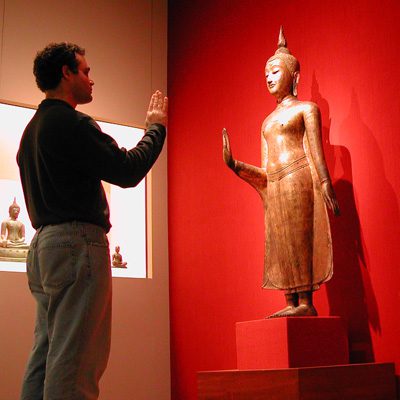 Jaimal Yogis is the author of the compelling, endearing, and enlightening memoir–Saltwater Buddha: A Surfer’s Quest to Find Zen on the Sea. If you haven’t read this already, you should. It’s one of my favorite books.
Jaimal Yogis is the author of the compelling, endearing, and enlightening memoir–Saltwater Buddha: A Surfer’s Quest to Find Zen on the Sea. If you haven’t read this already, you should. It’s one of my favorite books.For the last few years, I’ve been researching how our most primal emotion works: how we can better overcome, deal with, and even use fear. I’ve been talking to some of the world’s top scientists, doctors, athletes, artists, and spiritual teachers, as well as investigating my own fears and anxieties (they seem sort of endless). It’s a journey I recount in detail in The Fear Project book (out this winter from Rodale). But fear — like love — is so vast a topic, I couldn’t even attempt to put all my research into one manuscript. Hence, The Fear Project blog. Here you’ll find extensive interviews with athletes like world champion MMA fighter Urijah Faber and ultra-swimmer Jamie Patrick. You’ll also find discussions with neuroscientists, psychologists, business leaders, artists, and spiritual thinkers, as well as incredible real life stories, tips for dealing with fear/stress/anxiety, and a lot more.
It is interesting that the Buddha does not mention fear as a mental factor worthy of independent consideration (there are 52 mental factors that he did specify). Did he miss something? I don’t think so. Fear is so basic that it colors many of the mental factors. Let’s take a quick look at the three fires (or poisons): greed, hatred, and delusion.
Greed (passion, desire) is based upon the fear of not having enough or of losing what we have. Hatred (aversion) is based upon the fear that we cannot tolerate what is present. Delusion (ignorance, confusion) is thoroughly grounded in fear.
Ignorance is present when we don’t understand the three marks of existence–suffering, impermanence, and no-self.
Life is permeated by suffering, anguish, or dissatisfaction.That’s life. Fear makes it hard for us to accept what is present and, instead, put energy into resisting, fixing, or ignoring what is happening.
Everything is always changing and this can freak us out. There are things we don’t want to change and we may put a lot of energy obsessing over how we are losing the good things we have and feel right now and staving off the arrival of the feelings and things that we don’t want.
At the centerpiece of delusion is the belief in a self independent of the processes that comprise our existence. If there is this solid, independent self then it must be protected. If the self, however, is a fluid process, what is there to protect? What is there to be afraid of?
If have noticed two of our biggest fears are death and shame. Freedom from fear, then, is telling shame and death to go you know what to themselves.
If we weren’t so afraid all the time, we’d be free to play, love, and create without hesitation, limitation, or inhibition.

